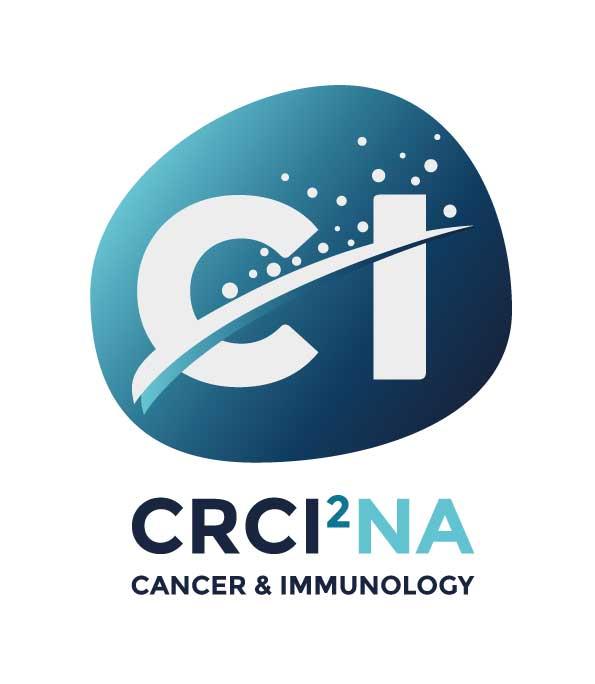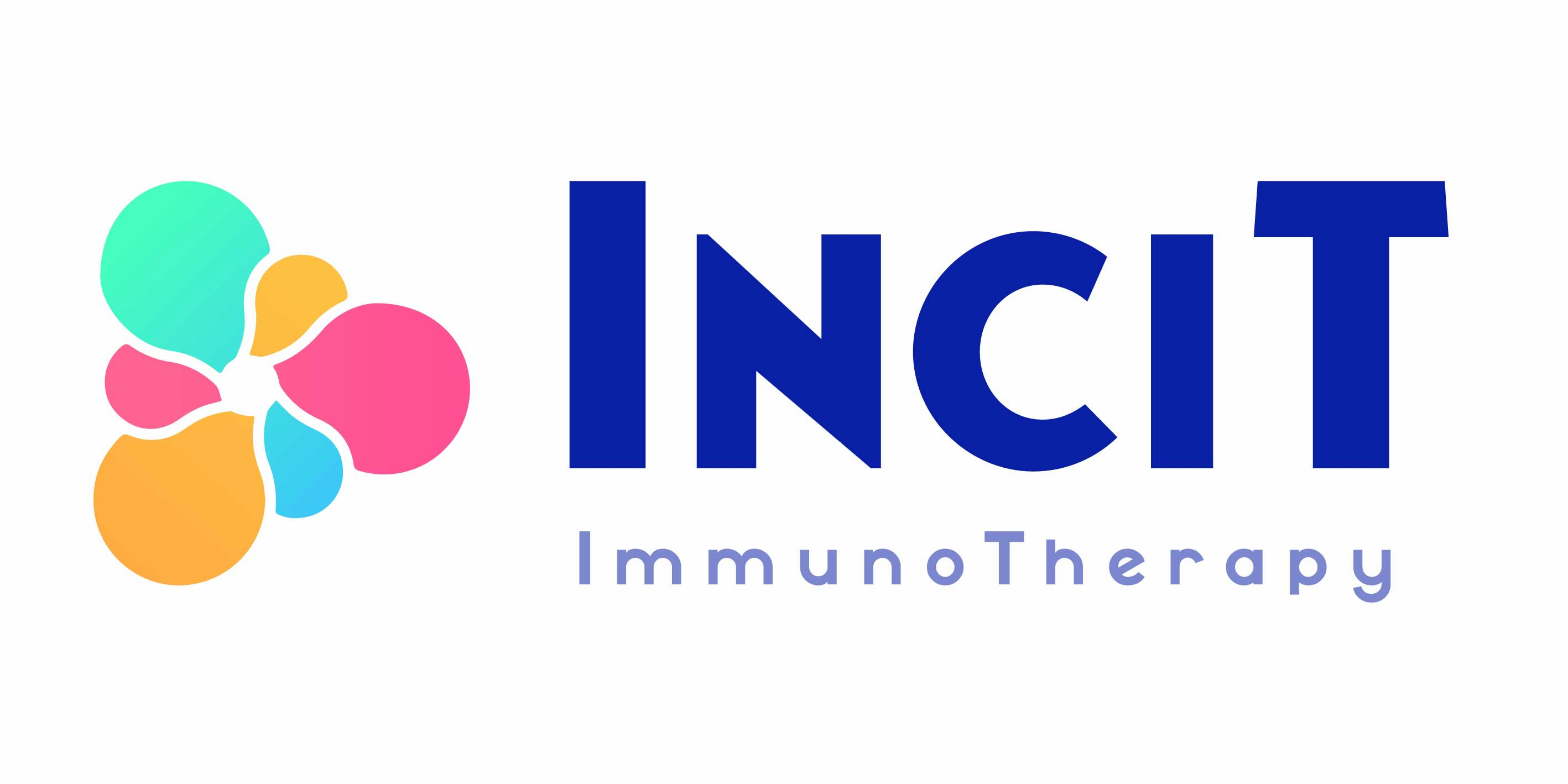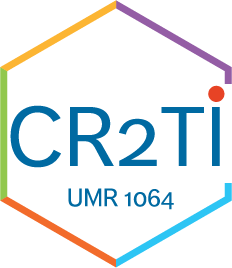I³ - Immunology and Immuno-Intervention - Master's level
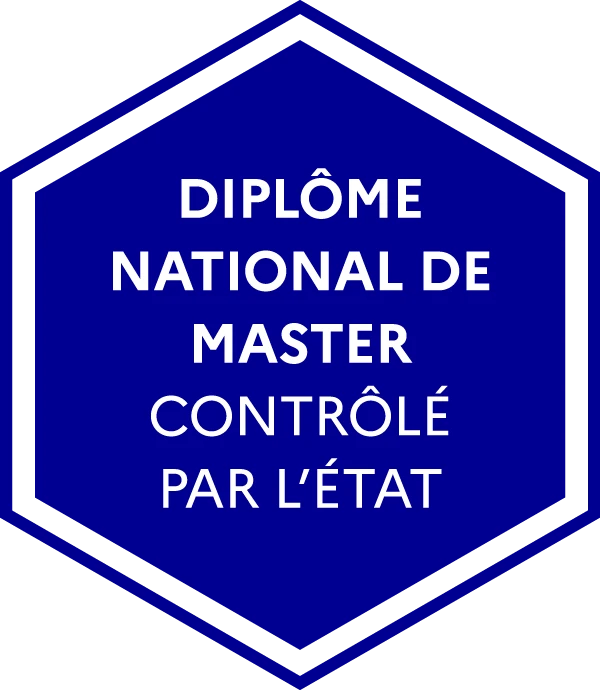
Résumé
Understanding the normal functioning of the immune system, its dysregulation and therapeutic manipulation in human pathology The Master I³ is aimed at students from a variety of backgrounds in Basic Sciences and Health. Read moreAccéder aux sections de la fiche
Details
Master I3 event
Watch the video of the event : https://immunohub.iuis.org/iuis/2024/webinars/4151395
Leading experts, Janis Taube and Hervé Fridman, will discuss the evolving landscape of immune-based tumor classification, addressing the opportunities, challenges, and emerging trends that shape immunotherapy decision-making. Through in-depth presentations and a dynamic roundtable discussion, participants will gain valuable knowledge on how immune profiling can refine tumor classification and improve therapeutic strategies.
https://immunohub.iuis.org/iuis/2024/webinars/4151395
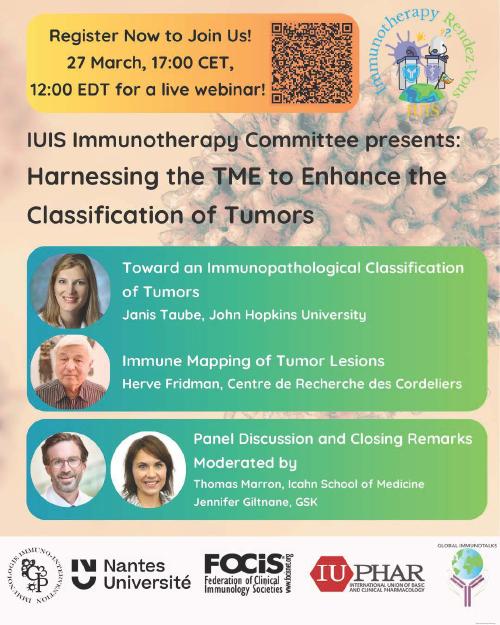
Master's programme news
Upcoming event :
�� International Immunotherapy School – 11th Edition

We are pleased to announce the 11th edition of our online International Immunotherapy School, taking place March 23–25.
This year’s program brings together internationally recognized experts to explore how aging reshapes the immune system, from immune cell development and tissue immunity to systemic inflammation—and how these changes contribute to cancer, cardiovascular disease, neurodegeneration, and impaired host defense.
The course combines foundational immunology with cutting-edge human and translational research, highlighting actionable pathways and therapeutic strategies aimed at restoring immune balance in older adults.
�� Online | Free | Registration required
�� Register here: https://www.eventbrite.com/e/international-course-of-immunotherapy-march-23-25-2026-tickets-1981804533709?aff=oddtdtcreator
Looking forward to welcoming you!
Best regards,
Jerome Martin
Programme leaders
International mobility
You can go abroad during your studies:
- Erasmus + mobility
- Internship with the Icahn School of Medicine at Mount Sinai - New York
- Mobility grant’ scheme
Introduction
Why choose the Master's in Immunology and Immuno-intervention (I³)?
Training in and through fundamental and translational research.
The Master I³ offers unique expertise in key areas :
- Immunopathology of chronic inflammatory diseases, transplantation, cancer and sepsis.
- Innovative immunotherapies in oncology, transplantation,
- infectiology and inflammation. Host-microbiota interactions in mucous membranes.
An environment of excellence :
The Master I³ programme benefits from an exceptional environment that encourages innovation and cutting-edge research:
Three internationally renowned laboratories :
- INCIT (Institute for Clinical and Translational Neuroscience)
- CRCI2NA (Nantes-Angers Cancer and Immunology Research Centre)
- CR2TI (Transplantation and Immunology Research Centre)
A dynamic ecosystem with several biotech companies specialising in immunology based in Nantes.
A unique collaboration between clinicians and researchers at the heart of the Nantes University Hospital, guaranteeing strong interaction between fundamental research and clinical applications.
What are the career prospects ?
Immersion in research from the Master's level onwards to acquire solid practical and theoretical skills. Integration into Nantes University's Cursus Master Doctorat (CMD) programme, opening the way to a PhD and careers in academia or industry.
The I³ programme has been awarded the Cursus Master-Doctorat / Graduate Programme label by Nantes Université. This means that the course draws on the research skills of internationally recognised laboratories, and trains students in the scientific approach and cutting-edge technologies. The skills acquired enable students to successfully enter the world of work with a Master's degree - in the R&D department of a company or in innovative SMEs, for example - or to continue their studies towards a doctorate.
Choose your job profile :
The Masters offers three profiles to suit your career plans:
Research and Analysis Profile
Ideal for students interested in :
In-depth analysis of scientific data.
Designing theoretical models and synthesising knowledge.
Careers in academic research or the pharmaceutical industry.
Experimental Research Profile
Perfect for those who want to:
Specialise in experimental manipulation in the laboratory.
Develop and test new approaches to immunotherapy or biotechnology.
Work in academic laboratories, start-ups or R&D centres.
Clinical Research Profile
Intended for those planning to :
Evaluating the effectiveness of treatments and medical devices.
Working with clinical trials and regulations.
A career in hospitals, the pharmaceutical industry or healthcare organisations.
Would you like to find out more about our job profiles?
Research and Analysis Profile
Experimental Research Profile
Clinical Research Profile
Admission
Entry requirement
Academic requirement
The programme opens for students in the Sciences and Health field (Students/ interns in Medicine, Pharmacy and Dentistry). The candidates must:
- Achieve a validated Bachelor's degree in Life Science
- Have a professional project concordant with the scope of Graduate Programme I³
- Have strong knowledge in immunology at the undergraduate level
- Have a good undergraduate knowledge in the fields of cell biology and in molecular biology (prokaryotic and eukaryotic genomes)
Language requirement :
Minimum level B2 in French (DELF or TCF) required for entry into the Master's programme
Application
Application procedure
Application procedure for the 2026-27 academic year :
If you are a French national or a citizen of the European Economic Area + Switzerland, Monaco and Andorra: to find out when the platform opens and closes, and to submit your application, go to the Master's application page.You are a citizen of a country outside the European Economic Area + Switzerland, Monaco and Andorra :
- Your country is concerned by the Campus France procedure (cf.: List of countries concerned): you must apply exclusively via the "Etudes en France" platform. Note that applications are generally registered between October and January of the previous year.
- Your country is not concerned by the Campus France procedure :
- To apply for M1, please use the Mon Master platform.
- To apply for M2, please follow the application procedure for international students without access documents (SURF).
Additional information :
Tuition fees and Scholarships.
Budget estimation :
Welcome grant Graduate programmes offer a 1.500 € welcome Scholarship for the best international students. Please prepare your application carrefully to demonstrate your motivation for the programme.
Internship : you may complete your internship abroad, with our financial support depending on the host country and the length of your internship. If you choose to do it in France, you will receive financial support of approximately €600 per month.
Programme
First year of Master
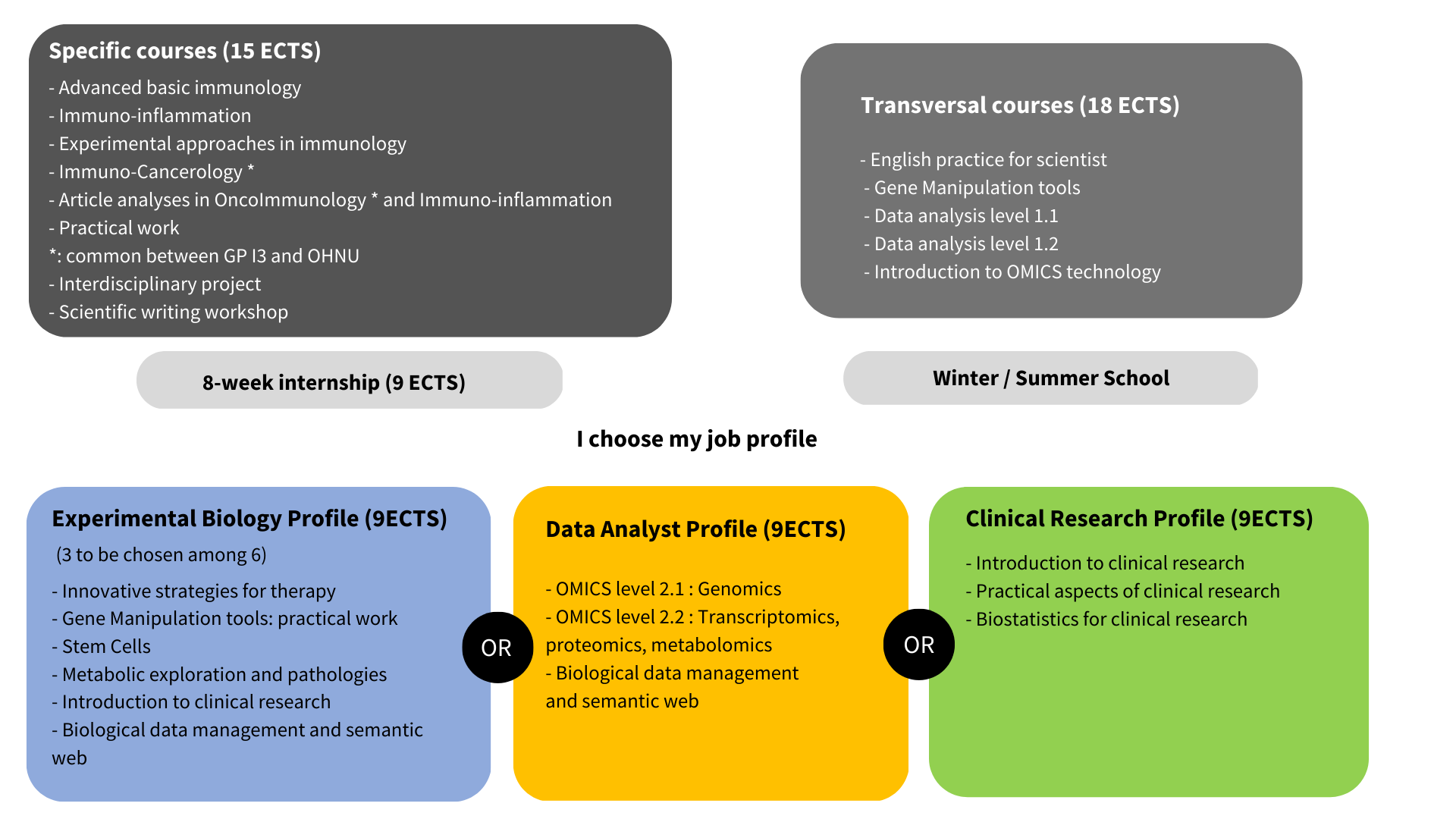
What's next?
Level of education obtained after completion
Competencies acquired
- Conduct research and analysis of bibliographic and technological resources
- Design a Biology-Health project in one's field of specialisation
- Develop an experiment in Health Sciences
- Analyse data collected in a fundamental, clinical or pharmacological research study
- Promote results and scientific production
Career opportunities
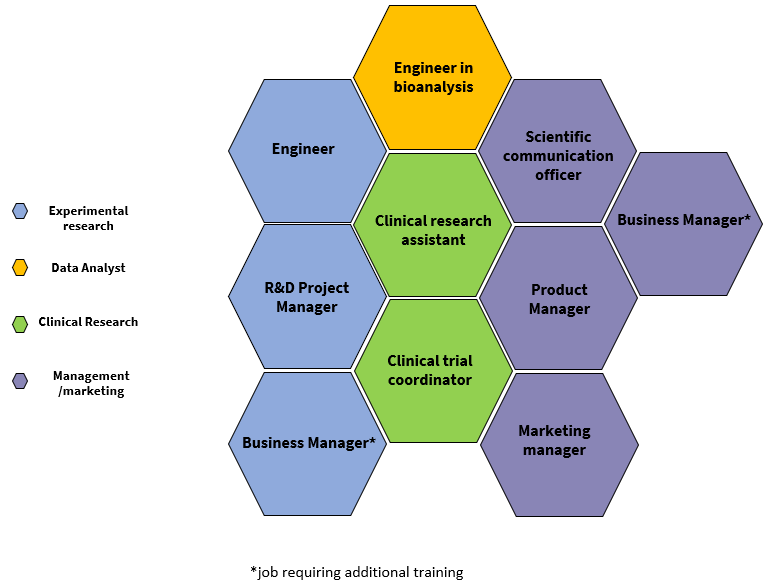
Further studies
After graduating the 2-year Master's degree, opportunities to pursue the Graduate Programme I³, PhD programme will be offered.
Career opportunities after obtained a PhD degree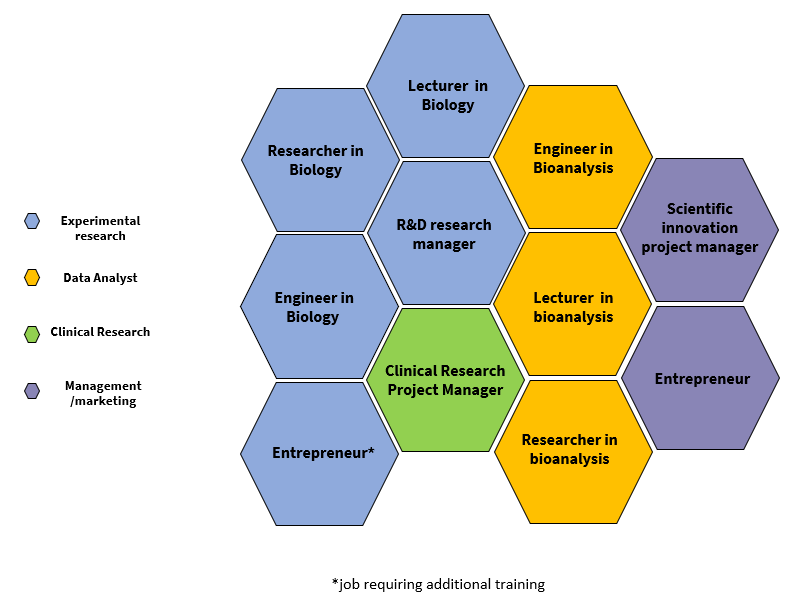


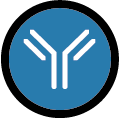
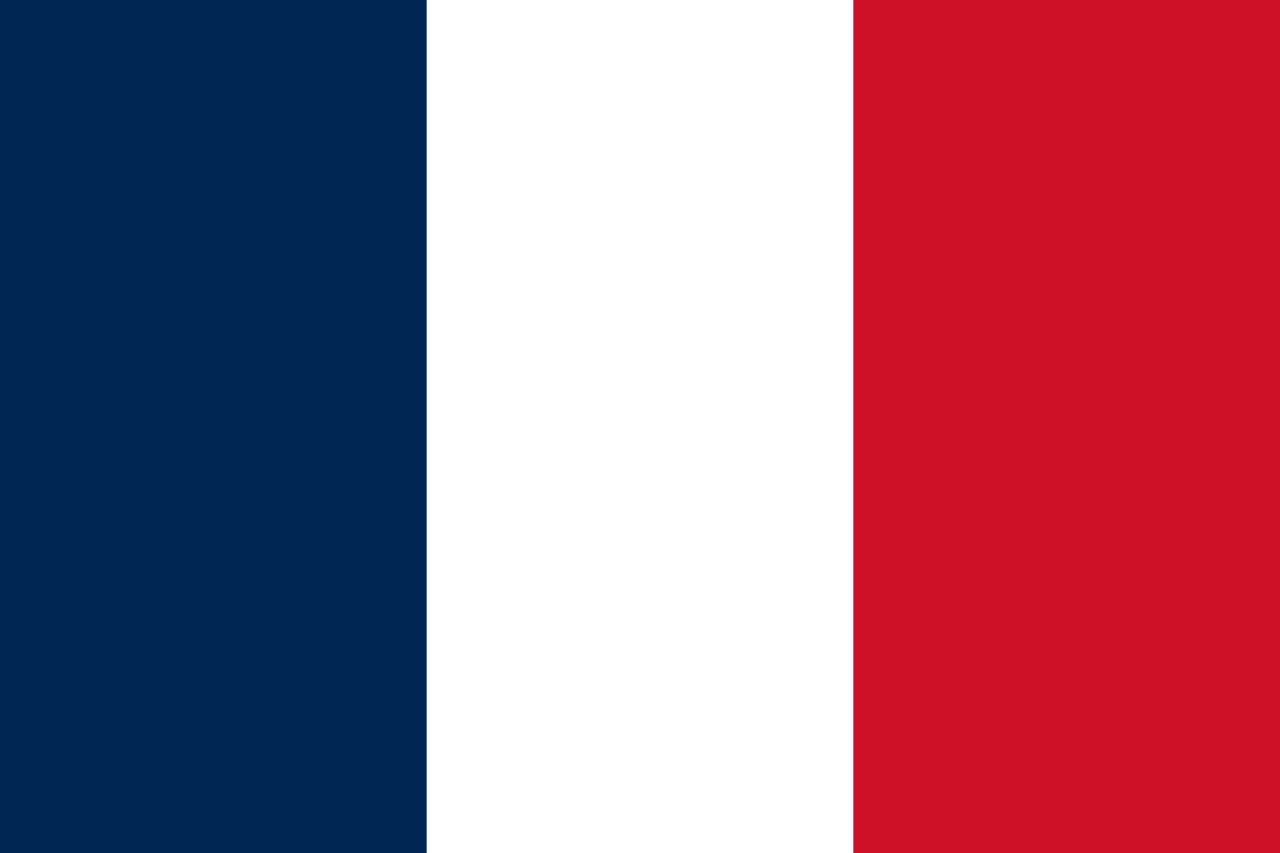 Version française
Version française